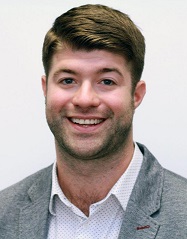|
In This Issue...
- IBNS 2016: Thank you!
- Attendee Thoughts on IBNS2016
- Editor Column
- Trending Science
- Member News
- Sympathy
IBNS 2016: Thank you!
By Pushpanathan Muthuirulan
I am proud to be the guest editor of the July IBNS newsletter following the huge success of 25th Annual Meeting of International Behavioural Neuroscience Society (IBNS) held this year in one of the most beautiful European cities, Budapest, Hungary, on June 7-12. The meeting included participation by researchers from diverse countries, showcasing their scientific research in Behavioural Neuroscience, which is happening all over the world. The feedback solicited from attendees of the 2016 IBNS meeting also showed that the meeting was beyond expectations and provided inspiring experiences to the participants, especially with respect to diverse meeting programs encompassing remarkable scientific events, prestigious awards and professional networking among researchers to share their ideas of high quality research. It seems that the dream of Mikhail Pletnikov, IBNS President, has come true, in that the "IBNS meeting, the crown jewel of the Society, is not only an excellent occasion to promote behavioural neuroscience, but is also the important milestone in the history of our Society." To that end, thank you to all who helped to make the IBNS 2016 meeting a huge success!
Attendee Thoughts on IBNS2016
The IBNS 2016 meeting was amazing and many people had great things to share! Let's see what our meeting attendees say about the meeting:
 Julianne Jett (IBNS member and 2016 meeting attendee) from University of Texas Health Science Center at San Antonio says in her testimony about the meeting that, "Over the years, IBNS has become my favourite meeting to attend and also one of my greatest professional resources. This statement has become increasingly true, while transitioning into next chapter of my career. In addition to the exceptional caliber of presented research, I continuously find opportunities to network with IBNS are unmatched by any other meetings. The size, structure, and pace of the meeting gives young scientists, like me, the time needed to establish meaningful connections that will have a significant impact on all of their careers. Julianne Jett (IBNS member and 2016 meeting attendee) from University of Texas Health Science Center at San Antonio says in her testimony about the meeting that, "Over the years, IBNS has become my favourite meeting to attend and also one of my greatest professional resources. This statement has become increasingly true, while transitioning into next chapter of my career. In addition to the exceptional caliber of presented research, I continuously find opportunities to network with IBNS are unmatched by any other meetings. The size, structure, and pace of the meeting gives young scientists, like me, the time needed to establish meaningful connections that will have a significant impact on all of their careers.
In an earlier newsletter (September 2015), IBNS member, Davide Amato, wrote a segment on how the educational program at the IBNS meeting strengthens the society. I must echo the same sentiment here. By providing various awards like "Early Career Award" and "multiple travel awards", as well as hosting events like the Poster Competition, Travel Award Blitz, meeting with Professionals, Student and Post-Doc, Social, and Career Development Workshops, it is clear that mentorship is an ultimate priority for IBNS. Every year these educational events are of great success due to the eagerness of our professional members to mentor our trainees.
IBNS dedication to professional training extends beyond the annual meeting. I have not found a society that provides more opportunities for the young members to get involved. Trainees are highly encouraged to build their professional skills year round by joining committees or being elected for student counsellor. Getting involved in these capacity will give trainees the opportunity to collaborate with scientists all around the world, as well as to gain transferable skills in diplomacy, concise communication and teamwork. To have so, many established scientists are willing to support our trainees career development through our annual events or standing committees, is truly inspiring and key to IBNS continued success."
 Martin Kavaliers (IBNS member and 2016 meeting attendee) from Western University, Canada, says in his testimony that, "The 2016 IBNS meeting held in Budapest provided an interesting program with a range of topics ranging from basic science through to translational and clinical. The diverse symposia in IBNS meetings were well-organized and structured. The symposia were highly attended by both "seasoned" participants and enthusiastic graduate (and undergraduate) students. The venue was very good and the provision of lunches and large elegant dining tables was an excellent idea - this permitted relaxed discussions with students as well as former and new colleagues. The poster sessions were interesting and well-spaced out permitting good interactions with the presenters and the numerous travel award winners. As one of the "seasoned" and regular participants I have thoroughly enjoyed this year's IBNS meeting and I am looking forward to next year's meeting in Hiroshima, Japan. Martin Kavaliers (IBNS member and 2016 meeting attendee) from Western University, Canada, says in his testimony that, "The 2016 IBNS meeting held in Budapest provided an interesting program with a range of topics ranging from basic science through to translational and clinical. The diverse symposia in IBNS meetings were well-organized and structured. The symposia were highly attended by both "seasoned" participants and enthusiastic graduate (and undergraduate) students. The venue was very good and the provision of lunches and large elegant dining tables was an excellent idea - this permitted relaxed discussions with students as well as former and new colleagues. The poster sessions were interesting and well-spaced out permitting good interactions with the presenters and the numerous travel award winners. As one of the "seasoned" and regular participants I have thoroughly enjoyed this year's IBNS meeting and I am looking forward to next year's meeting in Hiroshima, Japan.
For new attendees, if you enjoyed this year's meeting and are enthusiastic about becoming more involved in IBNS, please contact the IBNS Central Office ([email protected]).
Editor Column
Connecting link between Brain and Biome: unlocking psychobiotics
by Pushpanathan Muthuirulan
Microbes live all around and inside of us. More than a hundred trillion microbial cells live in just a human gut, outnumbering the total human cells by 10 fold-suggesting that gut is the major reservoir of microbes, more than any other organs in human body. One third of total microbes that live in the human gut are found to be similar across all individuals, but two third of gut microbes are specific to a particular individual. It's well known that gut microbiome is a key component of our immune system. Besides this, it also influences our mind by affecting hypothalamic-pituitary-adrenal (HPA)-axis in the brain, whose role is important in regulating the body's reaction to stress and many other processes including digestion, mood and emotion, sexuality and energy storage & expenditure. Researchers have also discovered that chronic hyper activation of the HPA axis can have knock-on effects for learning and memory, anxiety and depression, which are the major underlying symptoms for psychiatric illness. Increasing body of scientific evidences suggest that gut microbiome can communicate with the human brain through secretion of microbial metabolites (i.e., bile acid, short chain fatty acids and choline), or via immune activation (altering homeostasis of intestinal host-microbial interface) or via direct mechanism (i.e., release of neurometabolites/neurotransmitters). Gut dysbiosis (microbial imbalance) have also been shown to result in many nervous system disorders such as pain, autism and multiple sclerosis. Overall, this evidence reveals the importance of the gut microbiome on the gut-brain axis. During recent years, it has been shown that some probiotic bacteria may also be helpful in treating stress-related disorders and other mental related illness. These compelling evidences open up a new idea of 'psychobiotics'. According to Professor Ted Dinan at University College Cork, psychobiotics are live organism that, when ingested in adequate amounts, produces a health benefit in patients suffering from psychiatric illness. Therefore, understanding the real connections between brain and biome will help us in unlocking novel psycobiotics that are highly beneficial and can be supplement the use of anti-depressant to treat psychiatric illness. In conclusion, with those sights of promoting mental health, 'Prevention' is always better than 'Cure'¿ protecting our gut health (maintaining microbial balance) from environmental factors such as antibiotics use, dietary intake of pesticides and chemical exposures can promote brain health.
Trending Science
In this column, we will share the latest research, interesting scientific articles and news you can use.
Patients with Parkinson's Disease Show Impaired Use of Priors in Conditions of Sensory Uncertainty
Perugini and co-workers from UCLA have discovered that people with Parkinson's disease have a form of impaired decision-making that may be a major contributor to the movement problems that characterize the disease. The finding suggests that the neurological factors underlying Parkinson's, which currently affects nearly 1 million people in the United States, may be more complex than commonly believed. The study also could pave the way for strategies to detect Parkinson's earlier in its course.
Continue reading this press release on the UCLA web site: https://www.semel.ucla.edu/semel/news/16/jun/17/impaired-decision-making-related-memory-may-contribute-motor-symptoms-parkinson
Member News
In this column, we share news of our members' accomplishments, career advancement, awards and honors. Submit your member news to [email protected] for our next issue.
We would like to congratulate Dr. Michael Bowen for being the recipient of the IBNS 2016 Early Career Award.
 Dr. Bowen's research towards the application of cutting edge cellular and preclinical research techniques to central nervous system drug discovery and development have led to many clinical trials, patents and commercial partnerships. He has contributed a markedly high number of papers in top-cited journals. He has been the recipient of over $1M competitive research funding, a prestigious National Health and Medical Research Council Peter Doherty Biomedical Research Fellowship and several national/international research awards. He has also been invited as speaker at many high-profile national and international conferences, public forums and worldwide media coverage. His status as one of Australia's top young scientists was recently recognized at the 2015 NSW Premier's Prizes for Science and Engineering where he was named "Early Career Researcher of the Year". Early 2016, Dr. Bowen was invited by World Economic Forum's Young Scientist community as recognition of his "track record of advancing the frontiers of science in areas of high social impact." Dr. Bowen's research towards the application of cutting edge cellular and preclinical research techniques to central nervous system drug discovery and development have led to many clinical trials, patents and commercial partnerships. He has contributed a markedly high number of papers in top-cited journals. He has been the recipient of over $1M competitive research funding, a prestigious National Health and Medical Research Council Peter Doherty Biomedical Research Fellowship and several national/international research awards. He has also been invited as speaker at many high-profile national and international conferences, public forums and worldwide media coverage. His status as one of Australia's top young scientists was recently recognized at the 2015 NSW Premier's Prizes for Science and Engineering where he was named "Early Career Researcher of the Year". Early 2016, Dr. Bowen was invited by World Economic Forum's Young Scientist community as recognition of his "track record of advancing the frontiers of science in areas of high social impact."
Dr. Bowen said the following about the award:
"The IBNS has been incredibly supportive of my career over many years and it truly is an honour to receive this award in recognition of my work. The establishment and ongoing support of the Early Career Award is yet another shining example of the IBNS's highly commendable endeavours to recognise, support and celebrate the work of early career researchers in this field and I am proud to be a part of this great initiative."
Please send in your member news for our next edition!
Sympathy
 It is with much sadness that we announce the passing of IBNS member and UCSD Professor Athina Markou on May 18, 2016. She passed away peacefully at home surrounded by Dr. Mark Geyer and her family. Prof. Markou was a vibrant leader in the Department of Psychiatry, serving as Vice Chair for Basic Science Research at UCSD. Dr. Markou's research was defined by her goal to develop more efficacious therapeutics for addiction and mood disorders. Very early in her career, she was among the first to quantitatively measure reward and motivational processes characterizing psychostimulant dependence in rodents, providing the field with critical tools to investigate the neurobiological processes mediating drug dependence. It is with much sadness that we announce the passing of IBNS member and UCSD Professor Athina Markou on May 18, 2016. She passed away peacefully at home surrounded by Dr. Mark Geyer and her family. Prof. Markou was a vibrant leader in the Department of Psychiatry, serving as Vice Chair for Basic Science Research at UCSD. Dr. Markou's research was defined by her goal to develop more efficacious therapeutics for addiction and mood disorders. Very early in her career, she was among the first to quantitatively measure reward and motivational processes characterizing psychostimulant dependence in rodents, providing the field with critical tools to investigate the neurobiological processes mediating drug dependence.
You can continue reading UCSD's obituary here: https://psychiatry.ucsd.edu/News/Pages/In-Memoriam-Dr-Athina-Markou.aspx
Words cannot even begin to express our sorrow. Please join us in giving our love and condolences to Professor Mark Geyer and to Professor Markou's family, close research associates, and her trainees during this difficult time.
|